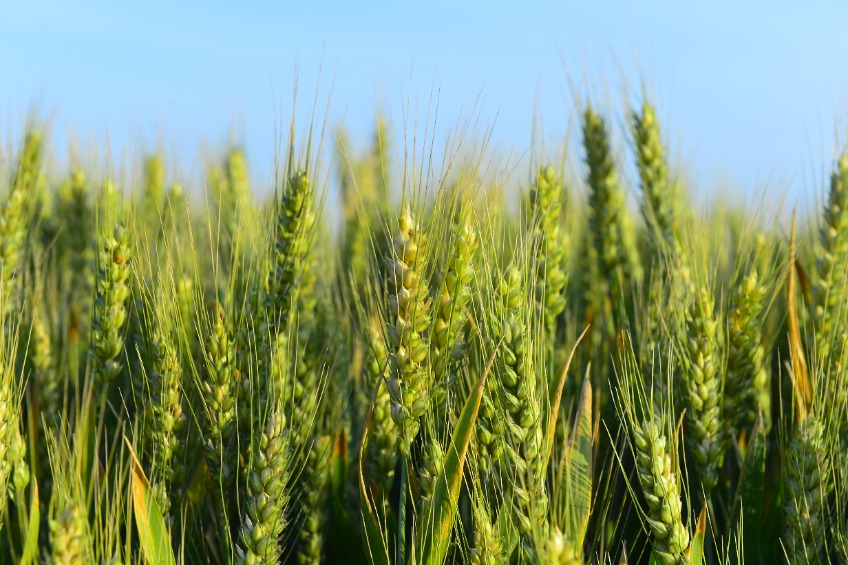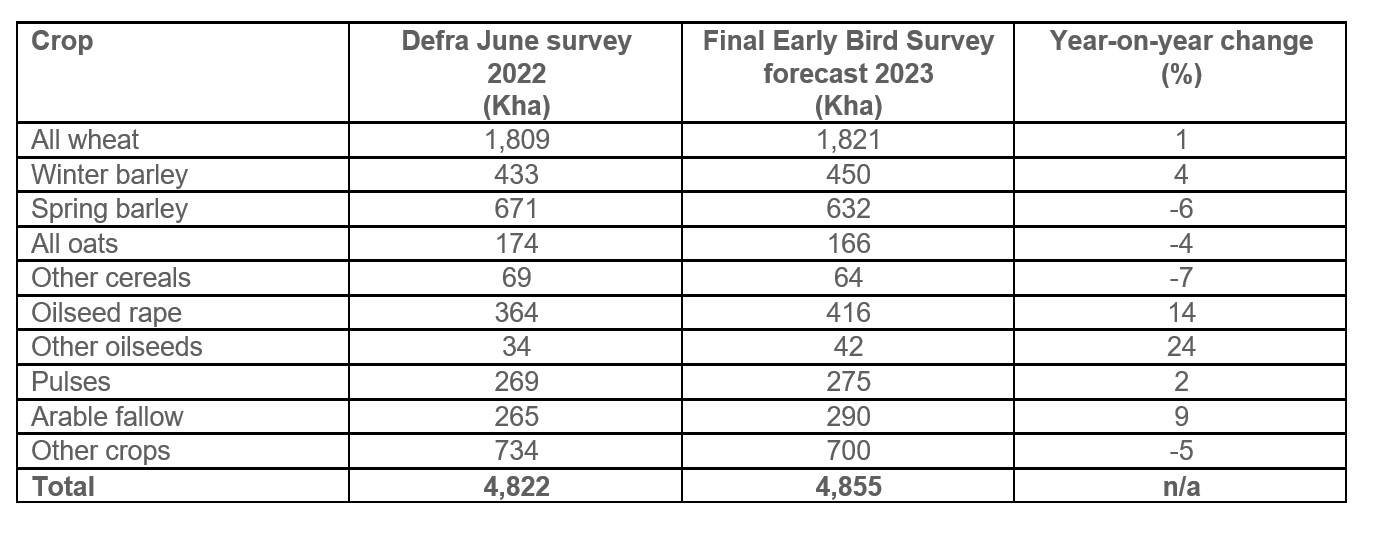
Winter crops are gaining ground due to favourable planting conditions in autumn 2022, according to AHDB's final Early Bird Survey (EBS).
The updated survey of planting and planting intentions follows trends established in autumn’s provisional EBS.
This stated that favourable planting conditions in autumn had contributed to a strength in winter plantings.
On a national level, all wheat, winter barley and oilseed rape areas are forecast to increase this harvest.
Winter oilseed rape is expected to climb again for harvest 2023, with an estimated year-on-year increase of 52 Kha.

Olivia Bonser, AHDB analyst, explained: "High rapeseed prices encouraged drilling, despite cabbage stem flea beetle concerns, and the favourable autumn helped crops establish."
However, the total area remains far below the historic high planted in 2012. "The forecasted winter barley area is also well above the previous five-year average of 398 Kha," she said.
The final EBS includes regional data for major crops: wheat, spring barley, winter barley, oats and oilseed rape.
Eastern England remains the largest wheat growing region, although it has seen a year-on-year decrease in plantings.
Many other regions have increased their share of the crop, including relatively large percentage gains in Wales and Northern Ireland.
Spring barley plantings are forecast to drop in almost all regions, except small increases in the East Midlands, and Yorkshire and the Humber regions.
Despite decreases in Scotland, and the Yorkshire and the Humber regions, winter barley areas are forecast to increase in all other UK regions.
This includes, potentially, the largest area of the crop in Eastern England since 2002.
If realised, the 2023 oat crop area will be the smallest since 2017. At the regional level, there are large upward and downward percentage swings.
This is a reflection, in part, of the relatively small oat area in comparison to other crops.
The only EBS region forecast to grow less oilseed rape is Wales and Northern Ireland, with the Eastern England and East Midland regions remaining the dominant producers.
